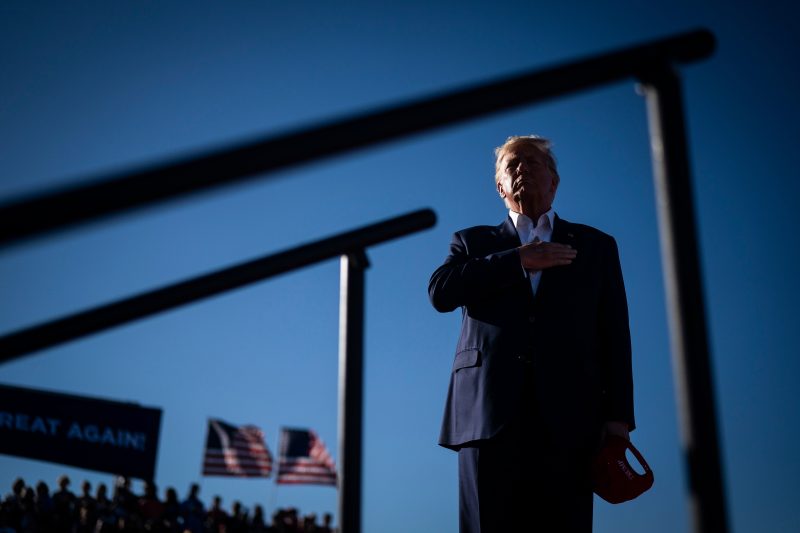The indictment of Donald Trump has coincided with his suddenly gaining ground on Florida Gov. Ron DeSantis (R) in the 2024 GOP primaries. While we don’t have extensive post-indictment data, virtually all of it shows Trump widening a lead that DeSantis had spent months trying to close.
And other polling, not focused on the head-to-head matchup, reinforces that there has indeed been a Trump rallying effect in the GOP — if not with the public at large.
A CBS News-YouGov poll released Monday got at this perhaps better than any post-indictment poll.
It showed the percentage of Republicans who said it was “very important” to be loyal to Trump rising from 35 percent in both September and January to 46 percent today. And those labeling it “somewhat important” or “very important” have increased from two-thirds to around three-fourths.
What CBS’s write-up didn’t note: That 46 percent who said it was “very important” is familiar. It’s precisely where things stood the last time Trump was officially targeted for his conduct, during his 2021 impeachment.
YouGov has also reinforced this in its regular tracking polls.
After a rough 2022 election for Trump’s handpicked candidates, the percentage of Republicans who wanted Trump to run in 2024 dipped below 50 percent at one point. And it stuck at right around half until early March.
But then the news of Trump’s potential indictment broke on March 9, with the Manhattan district attorney seeking a grand jury interview with Trump. And in weekly YouGov polling spanning that news, the percentage who wanted Trump to run shot up from 50 percent to 63 percent, which is about where it remains today.
Here’s how that looks:
The last bit of polling we’ll highlight is views of Trump personally.
After the 2022 election, Quinnipiac University showed Republicans saying that Trump’s impact on the party was mostly positive rather than mostly negative by a 46-point margin. Its most recent poll, conducted shortly before Trump’s actual indictment in late March, showed that rising to a 53-point margin.
The same poll showed Trump’s favorability split among Republicans (favorable views minus unfavorable views) rising even more: from 51 points positive in December (71-20) to 64 points positive (79-15) in late March.
The last time 8 in 10 Republicans had a favorable view of Trump in Quinnipiac’s regular polling was 2021.
Those numbers echo NPR-PBS-Marist College polling, which was conducted a bit earlier in March. While 70 percent of Republicans had a favorable view of Trump in its February polling, that increased to 81 percent in late March.
Some other polling on the question is more mixed. But the totality of it suggests that this isn’t just about suddenly second-guessing DeSantis’s status as Trump’s would-be usurper; it’s also about warming to Trump himself and coming together in the largely united purpose of defending him.
That shouldn’t be a huge surprise. After all, Trump has gone to great lengths over several years to build a Trump-centric persecution complex within the GOP. And the party as a whole has embraced it, as perhaps best exemplified by an entire GOP committee being devoted to rooting out the government’s supposed targeting of conservatives — using some rather convoluted and thinly constructed theories.
But that doesn’t mean it will always be thus. Rallying effects are often temporary. Voting is a long way away. And the question before Republicans as 2024 begins might well be between taking a supposedly principled stand in defense of their targeted but electorally damaged-goods leader, and leading the ticket with what might clearly be a more electable alternative.
That said, it’s not like the GOP has been able to resist the siren song to date.








